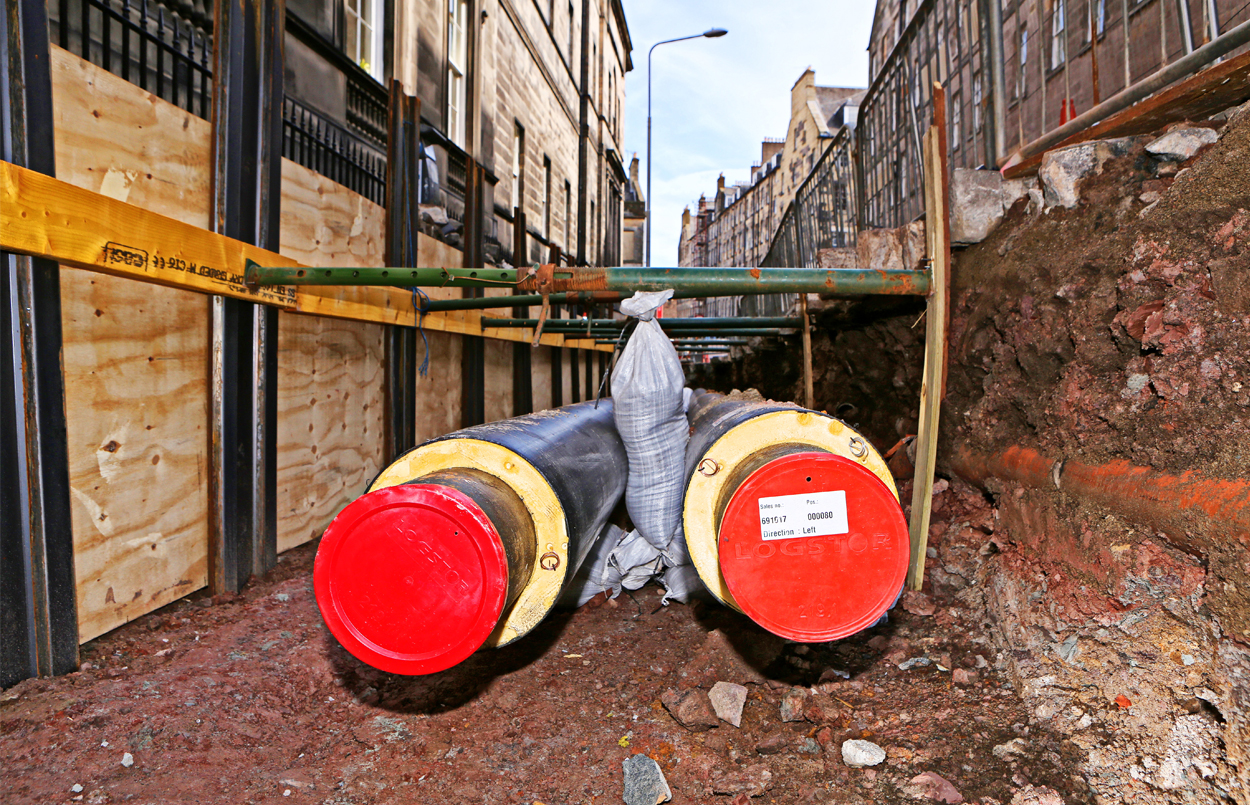New Bill to accelerate use of heat networks across Scotland
The Scottish Government has published new legislation on the development of heat networks to help meet climate change targets and tackle fuel poverty.

The Heat Networks (Scotland) Bill will introduce regulation and a licensing system for district and communal heating to accelerate use of the networks across Scotland.
District or communal networks deliver heat from a central source through insulated pipes to local homes and other buildings and have the potential to reduce or remove emissions from heating buildings and homes right across Scotland.
Heat networks are generally more efficient than individual gas boilers and can also be run wholly from renewable sources, reducing the need for customers to procure and maintain their own boilers.
To mark the publication of the bill, minister for energy, connectivity and the islands, Paul Wheelhouse, visited a heat network under construction at the St James Centre in central Edinburgh.
Mr Wheelhouse said: “We are facing a global climate emergency and one of the major challenges is reducing and ultimately stopping the impact from heating our homes and buildings, which is where more than half the energy we consume as a society currently goes.
“Heat networks have huge potential to reduce that impact by providing more efficient, environmentally-friendly solutions. The Scottish Government is determined to unlock the potential for that sector wherever possible and stimulate local jobs across Scotland in the process of delivering projects.
“We have done much to support the sector in recent years – there are currently more than 830 networks operating in Scotland, including significant projects we have supported in locations such as Glenrothes - but the sector is currently lacking a coherent regulatory framework and the Heat Networks Bill therefore marks the beginning of a transformational change, as we seek to create a supportive market environment for the necessary expansion of heat networks.
“The benefits of heat networks are not only environmental – they can save space, remove combustion risk within buildings, and have been shown to save householders and businesses up to 36% in fuel costs, with consequent benefits for tackling fuel poverty and reducing costs faced by businesses and public bodies.”
Sam Hockman, divisional CEO of ENGIE’s UK business, which is developing the Edinburgh St James’ heat network project, added: “We welcome the introduction of a regulatory framework for heat networks in Scotland. We believe this regulation will act as a catalyst to stimulate growth within the sector ensuring consistency across the industry, ultimately increasing investment in the market. Importantly it will also ensure Scottish consumers get a fair deal and enhance the service levels they receive.
“As a low-carbon, efficient way to heat homes and businesses, heat networks like the project we are developing here in Edinburgh, can play a key role in supporting both future heat demand and Scotland’s overall drive towards net zero emissions.”
WWF Scotland head of policy, Gina Hanrahan, said: “Transforming the way we heat our homes, offices and schools is a vital component of Scotland’s journey to zero carbon. This new legislation is an important milestone which will help to drive investment in urban heat networks, which have the potential to heat nearly half a million homes in Scotland by 2030, reducing emissions, creating jobs and cutting fuel costs.”

















